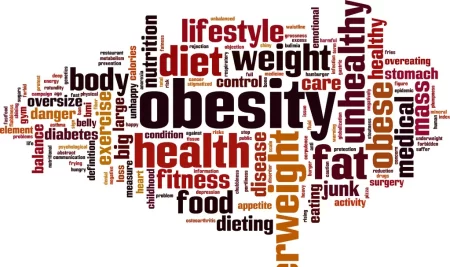 Obesity has become a global epidemic, affecting people of all ages, races, and socioeconomic backgrounds.
Obesity has become a global epidemic, affecting people of all ages, races, and socioeconomic backgrounds.
The World Health Organization (WHO) defines obesity as abnormal or excessive fat accumulation that presents a risk to health.
It is a multifaceted problem with far-reaching consequences for individuals and society as a whole. In this article, we will explore the dangers of obesity and the urgent need to address this growing health crisis.
Health Risks
Obesity is associated with a wide range of health risks, many of which can be life-threatening. Individuals who are obese have an increased risk of developing chronic conditions such as heart disease, stroke, type 2 diabetes, certain types of cancer, and respiratory problems.
Obesity also contributes to musculoskeletal disorders, such as osteoarthritis, due to the excessive strain on joints.
Furthermore, obesity can lead to mental health issues, including depression and low self-esteem.
Economic Burden
The economic burden of obesity is staggering. According to a study published in the journal Lancet, the global economic impact of obesity is estimated to reach $1.2 trillion annually by 2025.
This includes direct healthcare costs, such as hospitalizations, medications, and doctor visits, as well as indirect costs like decreased productivity and absenteeism. The burden of obesity affects not only individuals but also healthcare systems and the overall economy.
Childhood Obesity
Childhood obesity is particularly concerning as it sets the stage for a lifetime of health problems. Obese children are more likely to become obese adults, increasing their risk of developing chronic diseases early in life.
Moreover, childhood obesity can have immediate health consequences, including cardiovascular issues, diabetes, and psychosocial problems. This alarming trend underscores the need for comprehensive strategies to promote healthy eating and physical activity in schools and communities.
Environmental Impact
The impact of obesity extends beyond individual health and economic costs – it also affects the environment. The production and consumption of high-calorie, processed foods contribute to greenhouse gas emissions, deforestation, and water pollution.
Additionally, the transportation required to distribute these foods contributes to carbon emissions. Addressing obesity requires not only personal lifestyle changes but also sustainable and environmentally friendly approaches to food production and distribution.
Prevention and Intervention
Preventing and addressing obesity requires a multifaceted approach. Public health efforts should focus on promoting healthy eating habits and regular physical activity from an early age.
This includes implementing nutritional guidelines in schools, creating safe spaces for physical activity, and raising awareness about the dangers of obesity.
Additionally, healthcare providers should play a vital role in identifying and managing obesity through personalized treatment plans and ongoing support.
It is essential to address this growing health crisis through comprehensive strategies that target prevention, intervention, and public education. By promoting healthy lifestyles, implementing policies that support healthy eating and physical activity, and investing in research and innovation, we can combat the risks of obesity and improve the well-being of individuals and societies worldwide.
Picture Credit: VistaCreate
